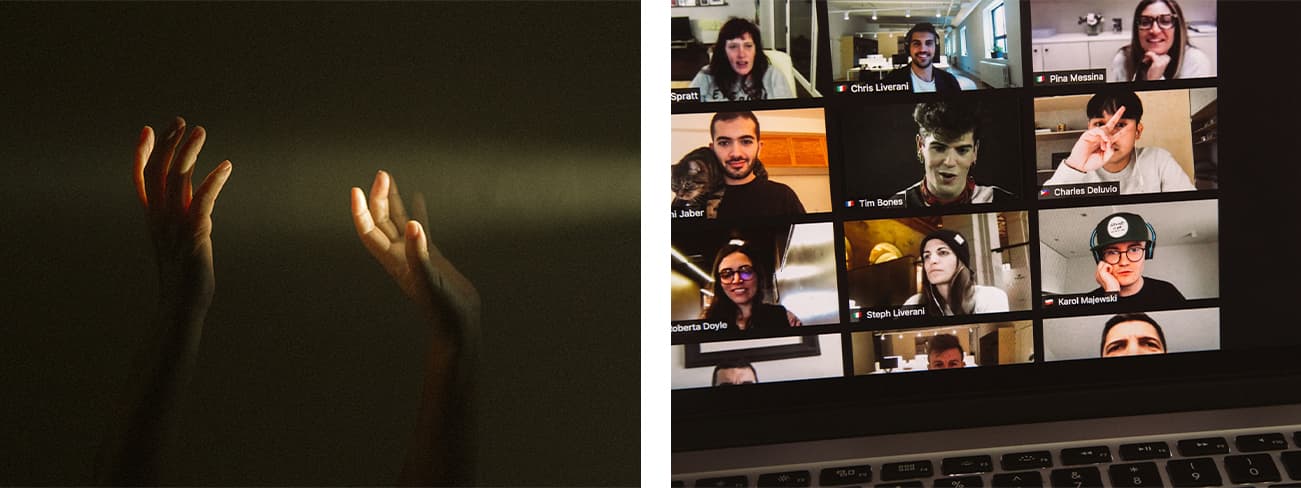Building Community and Connection in an Age of Isolation
Reading Time: 4 minutesSocial isolation and loneliness are two of the primary factors leading to anxiety, depression, and suicidal ideation among young adults. Young people often feel disconnected and alone, as if no one truly understands what they’re going through. In a study conducted by researchers at Harvard, 61 percent of young adults reported high levels of loneliness, and many of them said they felt as if no one “genuinely cared” about them.
Moreover, while online schooling and social distancing are no longer in effect, the mental health impact of pandemic isolation remains. Many young adults are struggling with social anxiety, fear of leaving the house, and an inability to resume their normal routines and relationships. In an Associated Press survey released on December 6, 45 percent of Gen Z respondents said maintaining connections with friends has become more difficult, and 40 percent said romantic relationships have also been harder. Depression in college students has also increased. Not surprisingly, about half of this group said it’s also more difficult to maintain mental health and to have fun.
In an age of isolation, it’s critical for young adults to build a sense of connection and belonging. Moreover, addressing young adult loneliness and isolation is key to long-term healing from mental health and co-occurring disorders.
The Role of Community Within the Treatment Experience
A large body of research demonstrates that positive social relationships, such as those built in treatment with peers and mentors, have the following benefits:
- Better mental and physical health
- Protection against depression
- Enhanced stress resilience
- Reduced likelihood of substance abuse relapses.
In addition, specific treatment modalities have been found to effectively counteract loneliness. A new review study finds that group therapy, such as music therapy and sports, helps create stronger feelings of belonging. In addition, the study found that cognitive approaches focused on reframing negative thoughts result in lower perceived levels of loneliness and isolation.
In addition to the benefits of group therapy, group activities like completing household chores have less obvious but significant benefits. For example, in residential treatment at Newport Institute, clients are held to certain standards in terms of cleanliness, morale, mutual respect, and transparent communication. If these standards are not met, the clinical team and care coordinators intervene to assist clients in collaboratively processing the underlying issues that catalyze problems within the community. By addressing these relational challenges, clients learn to resolve conflict peacefully. Hence, they can practice the healthy communication and coping strategies they’re learning in treatment.
As human beings, we evolved to need each other and to be part of a community. There’s something deeply ingrained in us about wanting to be a part of a shared identity.
Vivek H. Murthy, MD
US Surgeon General
Healing Family Ties
In addition to peer-focused activities, therapeutic experiences with family and loved ones are an important part of the treatment process. At Newport Institute, family therapy sessions follow the five-task framework of Attachment-Based Family Therapy (ABFT), designed to repair ruptures in the parent-child relationship. During our family program, clients and families come together for multi-family process groups. Here they meet other families with similar experiences, and naturally form bonds with one another.


These interventions help heal fractures within the family unit and strengthen connections, while building community for both young adults and parents. Moreover, family members learn how best to support their loved one after they leave treatment, whether they are returning to the family home, entering a sober-living home, or going back to college or independent living.
The Importance of Community in Recovery: Aftercare and Alumni Services
Healing doesn’t end when treatment is over. In fact, much of the real work starts once a young adult heads back out into the world. In addition to the tools and self-knowledge they gain from their time in treatment, they also take away a strong sense of community to support sustained recovery. When clients do relapse, a supportive network helps them to recover more quickly.
As our clients continue to grow, they create authentic and caring connections with others who are on a similar path, who share their experiences, goals, and sense of hope. Our young adult alumni program is designed to nurture these relationships. Our alumni team ensures that even after discharge, young adults have a mental health and recovery community to lean on and know that they are not alone.
Our alumni network helps clients maintain the bonds they created in treatment. They remind us of the value of authentic connections, and of tending to and honoring one’s highest self.
Caydin Sanders
Newport’s National Director of Experience
Remote and in-person events, as well as online groups and networks, give alumni safe spaces to connect in healthy environments that foster shared objectives. These forums provide an opportunity to recalibrate their narratives and recommit to their goals for recovery.
How Treatment at Newport Institute Addresses Young Adult Loneliness
Building community is a critical component of the treatment experience at Newport Institute. While each client’s treatment plan is tailored to their specific strengths, interests, and needs, everyone who accesses our services has multiple opportunities to practice building community to support their recovery. They benefit from targeted interventions that foster personal and peer accountability, along with a strong sense of belonging, including:
- Family-style meals with peers and staff
- Responsibilities related to caring for a shared space
- Adventure Therapy, which builds cooperation and collaboration
- Group therapy
- Fun community-building activities.
From the moment a client first enters treatment, we begin identifying the strengths and challenges that will affect their life once they leave Newport Institute. Our caring and compassionate staff partner with clients and families throughout the treatment experience. Thus, young adults strengthen their communication skills, heal their relationships, and build a caring community that will uplift and encourage them, long after their time with us comes to a close.
Contact us today to learn more about our specialized care, and how we support young adults to build thriving and connection.

